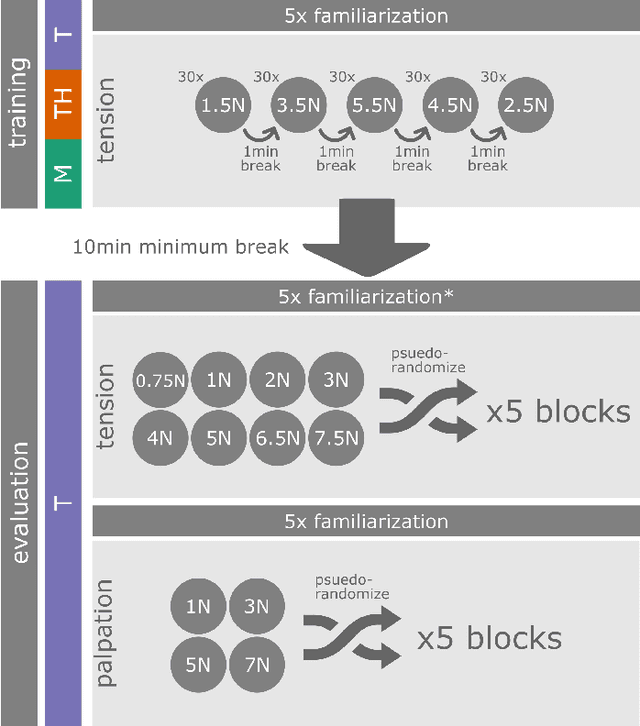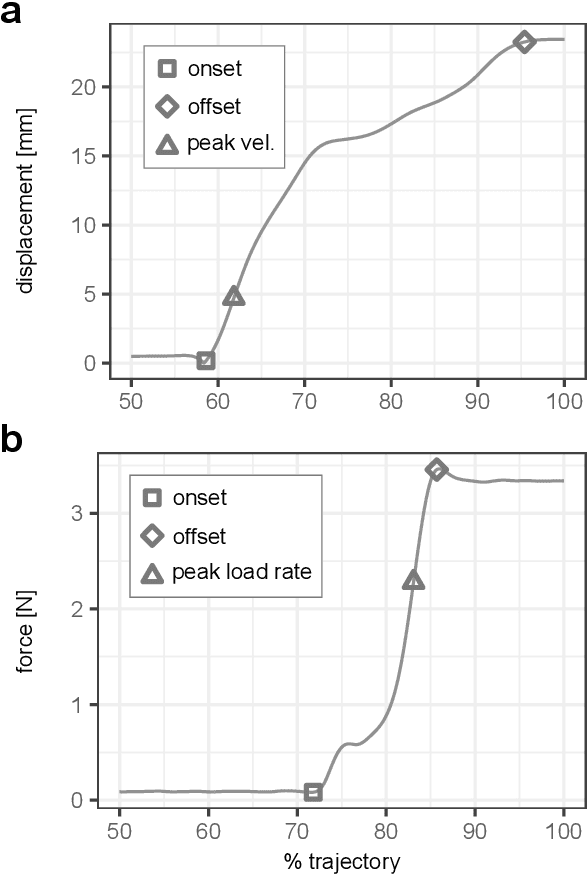Task Dynamics of Prior Training Influence Visual Force Estimation Ability During Teleoperation of a Minimally Invasive Surgical Robot
Paper and Code
Apr 28, 2020



The lack of haptic feedback in Robot-assisted Minimally Invasive Surgery (RMIS) is a potential barrier to safe tissue handling during surgery. Bayesian modeling theory suggests that surgeons with experience in open or laparoscopic surgery can develop priors of tissue stiffness that translate to better force estimation abilities during RMIS compared to surgeons with no experience. To test if prior haptic experience leads to improved force estimation ability in teleoperation, 33 participants were assigned to one of three training conditions: manual manipulation, teleoperation with force feedback, or teleoperation without force feedback, and learned to tension a silicone sample to a set of force values. They were then asked to perform the tension task, and a previously unencountered palpation task, to a different set of force values under teleoperation without force feedback. Compared to the teleoperation groups, the manual group had higher force error in the tension task outside the range of forces they had trained on, but showed better speed-accuracy functions in the palpation task at low force levels. This suggests that the dynamics of the training modality affect force estimation ability during teleoperation, with the prior haptic experience accessible if formed under the same dynamics as the task.
 Add to Chrome
Add to Chrome Add to Firefox
Add to Firefox Add to Edge
Add to Edge